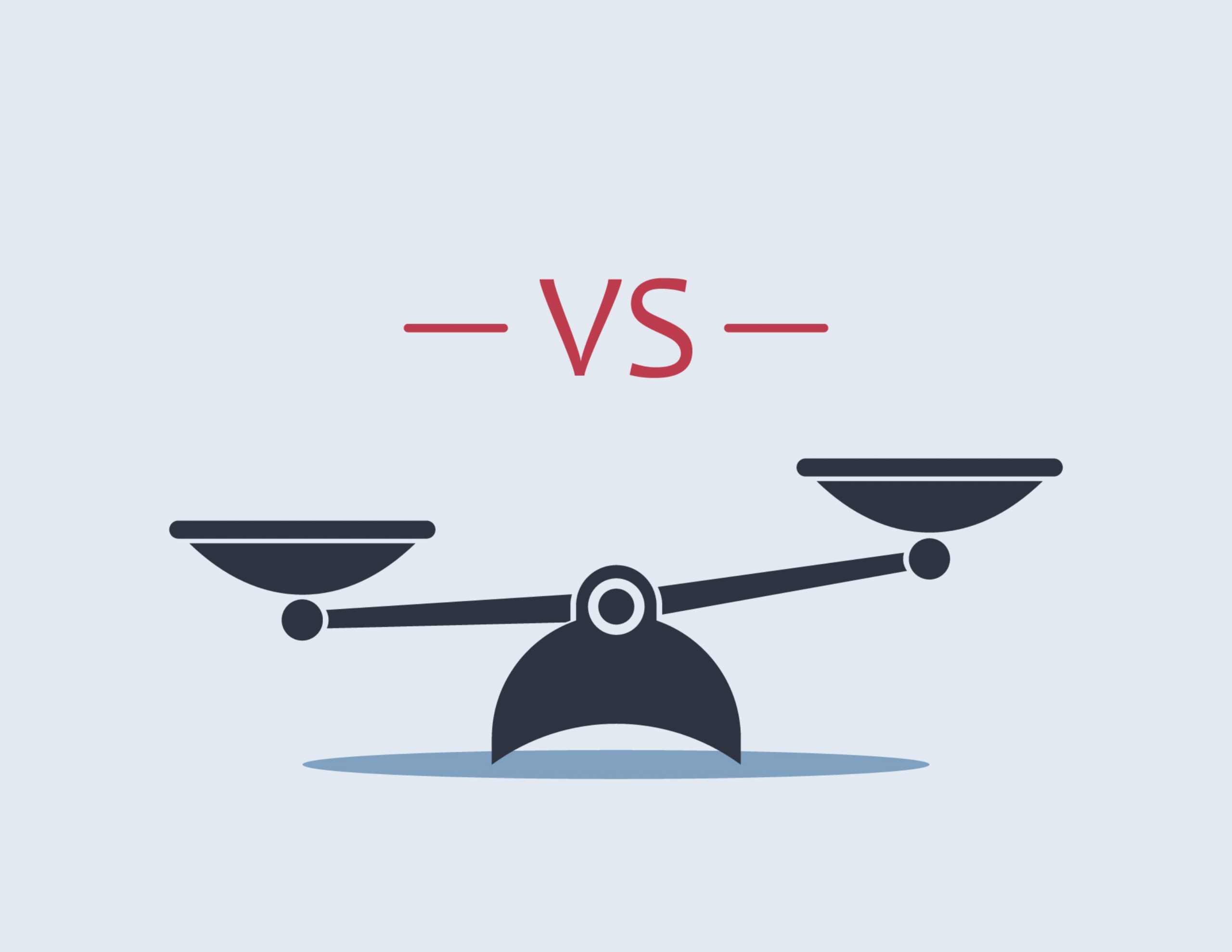
In the swiftly evolving realm of computing and computer hardware, fierce competition prevails as tech giants worldwide heavily invest in research and development. This relentless pursuit of innovation positions leading hardware companies among the largest and wealthiest across the globe.
Against the backdrop, in this piece, I have compared the fundamentals of two prominent industry players, Apple Inc. (AAPL) and Dell Technologies Inc. (DELL), to determine which stock holds the potential for superior long-term returns this year.
The tech hardware industry’s prospects are marked by swift innovation and ongoing technological advancements. Companies within this sector frequently lead in the development of cutting-edge technologies and products, presenting substantial opportunities for growth.
With businesses embracing digital transformation, the need for robust and scalable hardware infrastructure to manage growing data, ensure seamless connectivity, and support software applications is on the rise. The IT hardware market is expected to hit $177.11 billion by 2028, exhibiting a CAGR of 7.9% from 2023 to 2028.
Moreover, Artificial Intelligence (AI) took center stage as the most extensively debated technological advancement the previous year, with companies worldwide eagerly exploiting its potential. U.S. technology giants experienced a remarkable surge of $2.40 trillion in market caps last year, fueled by heightened enthusiasm surrounding generative AI.
This frenzy around generative AI is set to catalyze significant growth in the technology hardware industry in the forthcoming years. The global AI in hardware market is projected to surpass around $248.09 billion by 2030, demonstrating a robust 25.5% CAGR from 2023 to 2030.
Furthermore, the rising prevalence of the Internet of Things (IoT), characterized by interconnected and communicating devices, is creating a demand for novel hardware components and systems. The IoT devices market is projected to grow at a CAGR of 23.3% and reach $336.64 billion by 2028.
In light of such optimistic growth projections, both AAPL and DELL should benefit. However, in terms of price performance, DELL appears to have outshined AAPL. Over the past six months, DELL’s shares surged 44.1% to close the last trading session at $76.50. In contrast, AAPL’s shares gained 1.6% during the same period to close the last trading session at $192.53.
That being said, let’s now delve deeper into the fundamentals of the aforementioned Technology - Hardware stock to find out which one is the better pick.
Recent Developments
On December 11, 2023, AAPL introduced a revamped Apple TV app, aiming to enhance user experience in accessing their award-winning original series, films, live sports, movies, and TV shows. The redesigned app is more user-friendly, allowing seamless viewing across various AAPL devices, smart TVs, streaming sticks, gaming consoles, and more.
The goal is to provide users with immediate access to their favorites in the ever-expanding content library.
On December 14, 2023, DELL disclosed that specialized cloud provider CoreWeave has acquired thousands of DELL’s PowerEdge XE9860 servers featuring NVIDIA H100 Tensor Core GPUs as the core infrastructure for its cloud solutions.
These servers are optimized for large-scale NVIDIA GPU-accelerated workloads, catering to applications such as AI, machine learning, visual effects rendering, and extensive simulations.
Commenting on this, Jeff Clarke, chief operating officer and vice chairman at DELL, said, “AI is a powerful, completely transformational tool for businesses of all sizes but only if you have the right IT foundation in place. By bringing our most powerful Dell PowerEdge servers with NVIDIA H100 Tensor Core GPUs to CoreWeave customers, we're helping meet demand for advanced compute at scale."
Recent Financial Results
AAPL’s total net sales for the fiscal fourth quarter (ended September 30, 2023) declined marginally year-over-year to $89.48 billion. Meanwhile, its net income and EPS amounted to $22.96 billion and $1.46, up 10.8% and 13.2% from the prior-year quarter, respectively. However, during the same period, the company’s total operating expenses rose 1.9% from the year-ago value to $13.46 billion.
For the fiscal 2024 third quarter, which ended on November 3, 2023, DELL’s total net revenues amounted to $22.25 billion, while its net income and EPS rose 316.6% and 312.1% from the prior-year quarter to $1 billion and $1.36, respectively. Additionally, during the same period, the company’s total operating expenses declined 7.2% from the year-ago value to $3.66 billion.
Past and Expected Financial Performance
AAPL’s revenue has grown at a CAGR of 7.6% over the past five years. Street expects AAPL’s EPS for the fiscal 2024 first quarter (ended December 2023) to increase 11.7% year-over-year to $2.10. While its revenue for the same period is projected to increase marginally year-over-year to $118.20 billion
Conversely, DELL’s revenue has improved at a marginal CAGR over the past five years. Analysts predict DELL’s revenue and EPS for the first quarter (ending April 2024) to increase 3.3% and 10.1% year-over-year to $21.62 billion and $1.44, respectively.
Profitability
DELL’s trailing-12-month cash per share of $11.61 is higher than AAPL’s $1.93. Likewise, DELL’s trailing-12-month CAPEX/Sales of 3.06% is higher than AAPL’s 2.86%.
Thus, DELL is more profitable.
Valuation
In terms of the forward EV/Sales ratio, AAPL’s 7.45x is 797.6% higher than DELL’s 0.83x. Likewise, AAPL’s forward Price/Sales ratio of 7.54x is significantly higher than DELL’s 0.61x. Furthermore, AAPL’s forward EV/EBITDA multiple of 22.46 is 199.1% higher than DELL’s 7.51.
Thus, DELL is more affordable.
POWR Ratings
AAPL has an overall rating of C, which equates to Neutral in our proprietary POWR Ratings system. Conversely, DELL has an overall rating of B, translating to a Buy. The POWR Ratings are calculated considering 118 different factors, with each factor weighted to an optimal degree.
Our proprietary rating system also evaluates each stock based on eight distinct categories. AAPL has a C grade for Growth, justified by its mixed financial results in its last reported quarter. While DELL’s B grade for Growth is in sync with the solid third-quarter results.
Moreover, AAPL’s D grade for Value is consistent with its stretched valuation metrics. In terms of the forward EV/Sales ratio, AAPL’s 7.45x is 150.8% higher than the industry average of 2.97x. Likewise, AAPL’s forward Price/Sales ratio of 7.54x is 149.9% higher than the 3.02x industry average.
On the other hand, DELL’s B grade for Value is in sync with its discounted valuation metrics. In terms of the forward EV/Sales ratio, DELL’s 0.83x is 74.5% lower than the industry average of 2.97x. Similarly, the stock’s forward Price/Sales ratio of 0.61x is 79.7% lower than the 3.02x industry average.
Furthermore, AAPL’s D grade for Momentum is justified by its share price, which is currently trading below its 10-day moving average of $194.58. In contrast, DELL’s A grade for Momentum is in sync with its share price, which is currently trading above its 10-day moving average of $74.94.
Among the 36 stocks in the B-rated Technology - Hardware industry, AAPL is ranked #20, while DELL is ranked #9.
Beyond what we’ve stated above, we have also rated both stocks for Stability, Sentiment, and Quality. Click here to view AAPL ratings. Get all DELL ratings here.
The Winner
In the ever-evolving and competitive landscape of the technology hardware industry, both AAPL and DELL demonstrate a dedicated commitment to innovation. However, DELL's stronger financial position and more attractive valuation could collectively position it as a superior investment compared to AAPL.
Our research shows that the odds of success increase when one invests in stocks with an overall rating of Strong Buy. View all the top-rated stocks in the Technology - Hardware industry here.
What To Do Next?
Get your hands on this special report with 3 low priced companies with tremendous upside potential even in today’s volatile markets:
3 Stocks to DOUBLE This Year >
AAPL shares were trading at $185.56 per share on Tuesday afternoon, down $6.97 (-3.62%). Year-to-date, AAPL has declined -3.62%, versus a -0.55% rise in the benchmark S&P 500 index during the same period.
About the Author: Anushka Mukherjee

Anushka's ultimate aim is to equip investors with essential knowledge that empowers them to make well-informed investment choices and attain sustained financial prosperity in the long run.
Apple (AAPL) vs. Dell Technologies (DELL) - Which Tech Stock Is Poised for 2024 Gains? StockNews.com






